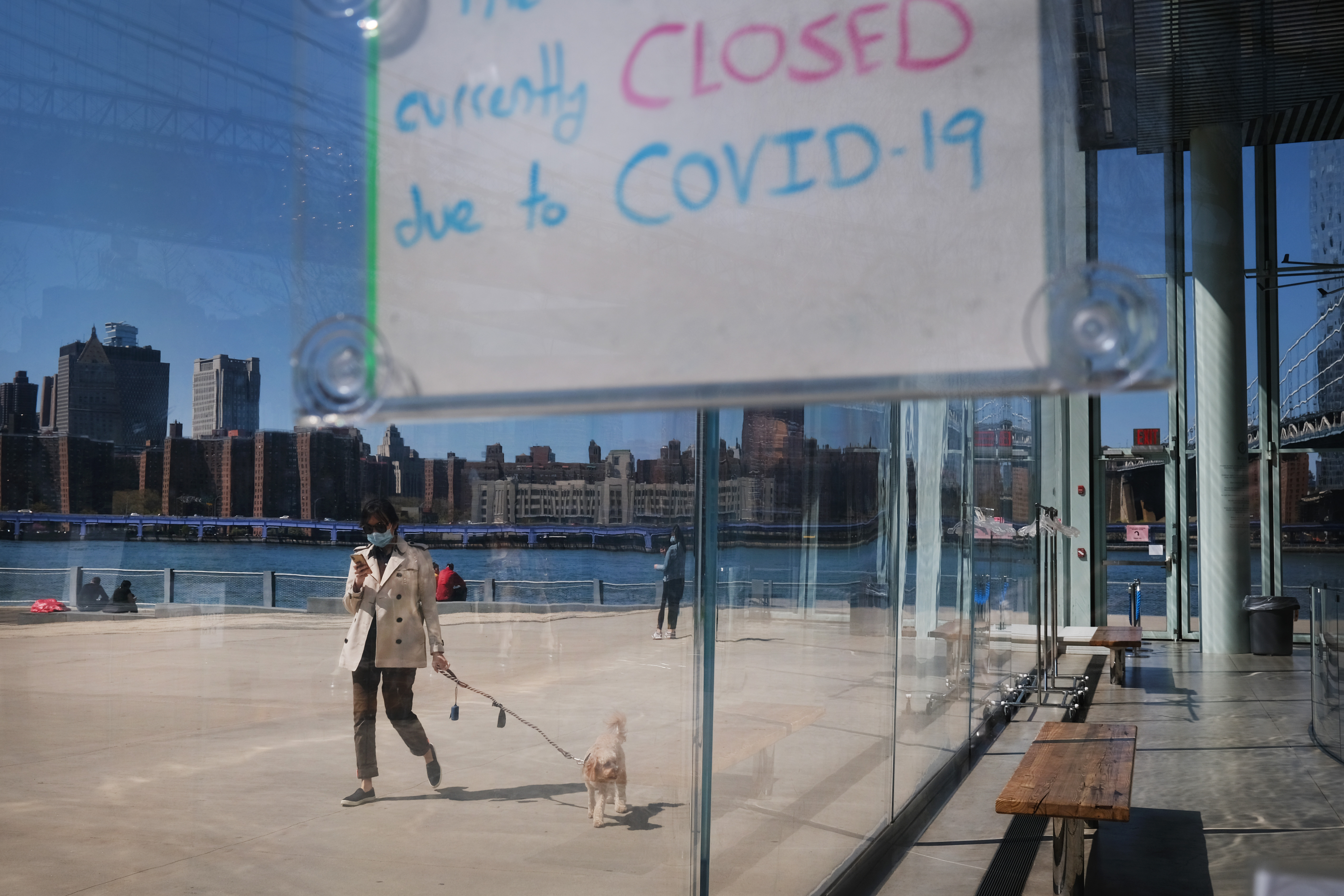Delta sinks hopes for quick expansion
The economy is projected to slow down

A free daily email with the biggest news stories of the day – and the best features from TheWeek.com
You are now subscribed
Your newsletter sign-up was successful
The smartest insight and analysis, from all perspectives, rounded up from around the web:
Economists and businesses last week adjusted their plans as COVID's Delta variant undid expectations of a strong recovery, said Eric Morath and Theo Francis at The Wall Street Journal. A raft of new economic numbers shows that rather than the hoped-for takeoff, "the U.S. economy is facing a slowdown in September." Instead of a full reopening, businesses now face "renewed mask mandates, travel restrictions, event cancellations, and delayed office reopenings." The effects are evident in deeply disappointing jobs data. "Employers overall added 235,000 jobs, down from about 1 million each in June and July." Movie theater audiences fell by more than half in August from July's pandemic peak, and performing artists are canceling tours. For the year, economists still project 6 percent growth for the U.S. — still "extremely fast." But they are wary of "additional shocks that could further slow the expansion."
Delta is surely scaring some people out of the labor market, said Sam Ro at Axios. A survey by the U.S. Census Bureau in late August found that "3.2 million Americans said they were not working because they were 'concerned about getting or spreading the coronavirus.'" That number is way down from its peak (6.24 million) in July 2020. But while the ranks of the unemployed decreased through the summer, "the wave of Delta infections has renewed worker fears." President Biden's "summer of joy" has given way to an "autumn of anxiety," said Paul Krugman at The New York Times. Offices are delaying reopening, restaurants are reclosing indoor dining, travel is down again. "The economic hit isn't looking nearly as bad as earlier waves of the pandemic," but it comes as many pandemic relief programs, such as expanded unemployment benefits, expire "with no prospect of renewal." Millions of workers are stranded "without the relief they need."
The Week
Escape your echo chamber. Get the facts behind the news, plus analysis from multiple perspectives.

Sign up for The Week's Free Newsletters
From our morning news briefing to a weekly Good News Newsletter, get the best of The Week delivered directly to your inbox.
From our morning news briefing to a weekly Good News Newsletter, get the best of The Week delivered directly to your inbox.
We're not in lockdown anymore, said Jeffry Bartash at Market Watch. There are millions of jobs available. Wages are up 4.3 percent over the past year. But the shortage of people willing to work is hampering production. Manufacturing executives say they have "more than enough orders" but not enough workers "to produce as much as they are able to sell." Don't discount the impact inflation has had on the economy, said Olivia Rockeman and Reade Pickert at Bloomberg. The number of people who "see their financial situation worsening in the coming year" is higher than at any point since 2012, mainly because "prices are rising faster than wages in most industries." More consumers are concluding "it's a bad time" to take trips or buy vehicles or houses.
That's not the real reason the economy is weakening, said Jill Filipovic at CNN. "The people who are refusing the vaccine and refusing to mask up aren't just killing themselves, they are destroying the American economy." Outbreaks are closing schools, pushing more women out of the workforce. Employees are refusing to "risk their lives to wait tables or wash dishes." The fault doesn't lie with them. "It lies with the people refusing to take commonsense steps to get COVID under control."
This article was first published in the latest issue of The Week magazine. If you want to read more like it, you can try six risk-free issues of the magazine here.
A free daily email with the biggest news stories of the day – and the best features from TheWeek.com
-
 6 of the world’s most accessible destinations
6 of the world’s most accessible destinationsThe Week Recommends Experience all of Berlin, Singapore and Sydney
-
 How the FCC’s ‘equal time’ rule works
How the FCC’s ‘equal time’ rule worksIn the Spotlight The law is at the heart of the Colbert-CBS conflict
-
 What is the endgame in the DHS shutdown?
What is the endgame in the DHS shutdown?Today’s Big Question Democrats want to rein in ICE’s immigration crackdown